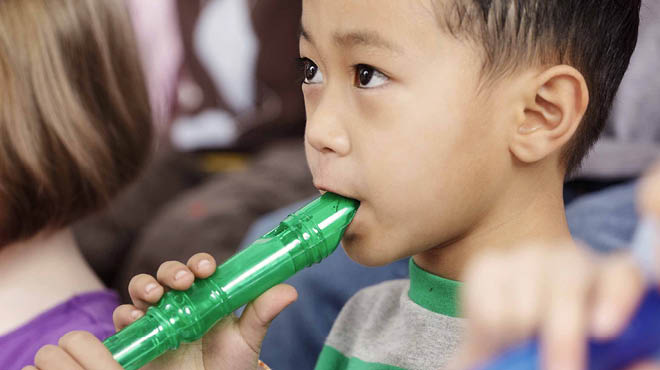Recent Posts
Does my child need antibiotics or will home remedies do?

For parents, it can be hard to tell whether their children's illness requires antibiotics or if there are other ways to treat symptoms effectively. Knowing which illnesses can safely be treated using home remedies instead of antibiotics is important to prevent the overuse of these drugs. The more children are treated with antibiotics, the more likely they are to become ill with antibiotic-resistant infections in the future.
Ear infections
When children have ear pain, consider using over-the-counter pain relievers to start. Not all ear pain indicates an ear infection. If an ear infection is the cause of the pain, children's ear infections usually improve within two to three days, especially for kids two years or older. Talk with their health care team if symptoms don't improve within two to three days.
Experts recommend antibiotics for ear infections for children:
- Age 6 months or younger
- Age 6 months to 2 years with moderate-to-severe symptoms
- Age 2 or older with severe symptoms
Severe symptoms to watch for are a fever over 102.2 degrees and severe ear pain lasting over two days that is not improving.
Health care professionals may recommend antibiotic eardrops instead of oral antibiotics for children with ear tubes who have developed ear infections. Eardrops can be more effective than oral antibiotics in these cases because the tubes allow the medication to travel straight into the middle ear, where most infections are located. Eardrops are also not as likely to cause resistant bacteria as oral antibiotics.
However, you should ask about oral antibiotics if symptoms are severe and the infection does not improve with the eardrops.
Cold, flu and other respiratory infections
Antibiotics are not recommended to treat children's colds, flu, or other respiratory infections. Viruses cause most respiratory infections. Antibiotics fight bacterial infections, not viral infections.
At-home care for these illnesses should include hydration, which helps thin and loosen mucous in the nose and sinuses. Offer children water or try an electrolyte drink if their appetite is low. Warm liquids, such as soup or broth, also can be helpful. Over-the-counter saline nasal drops or saline spray can help loosen mucous in the nose. Try running a humidifier or having the child sit in the bathroom in the steam from a hot shower for additional relief.
Strep throat and cough
A sore throat can be a sign of strep throat, which is caused by bacteria. However, most children with a sore throat have a virus. Your health care team will need to perform a test for strep throat. If the results are positive, they will use antibiotics to treat the illness.
Ice cream, frozen fruit pops or cold beverages may help soothe a sore throat. Older children can try gargling salt water or sucking on throat lozenges. Always encourage children to get plenty of rest so their bodies can recover.
Children also should be evaluated by their health care team if they have a persistent cough lasting longer than 14 days without improvement, or if new or worsening symptoms develop. Illnesses that begin as viral infections can lead to a secondary bacterial infection requiring antibiotics.
Joslyn Hager, M.D., is a pediatrician in Chippewa Falls, Wisconsin.




